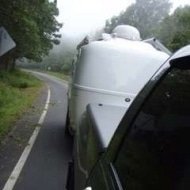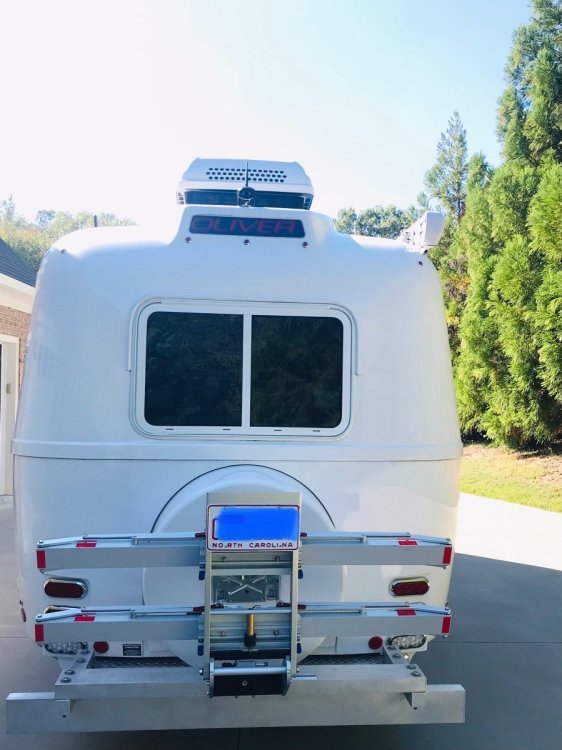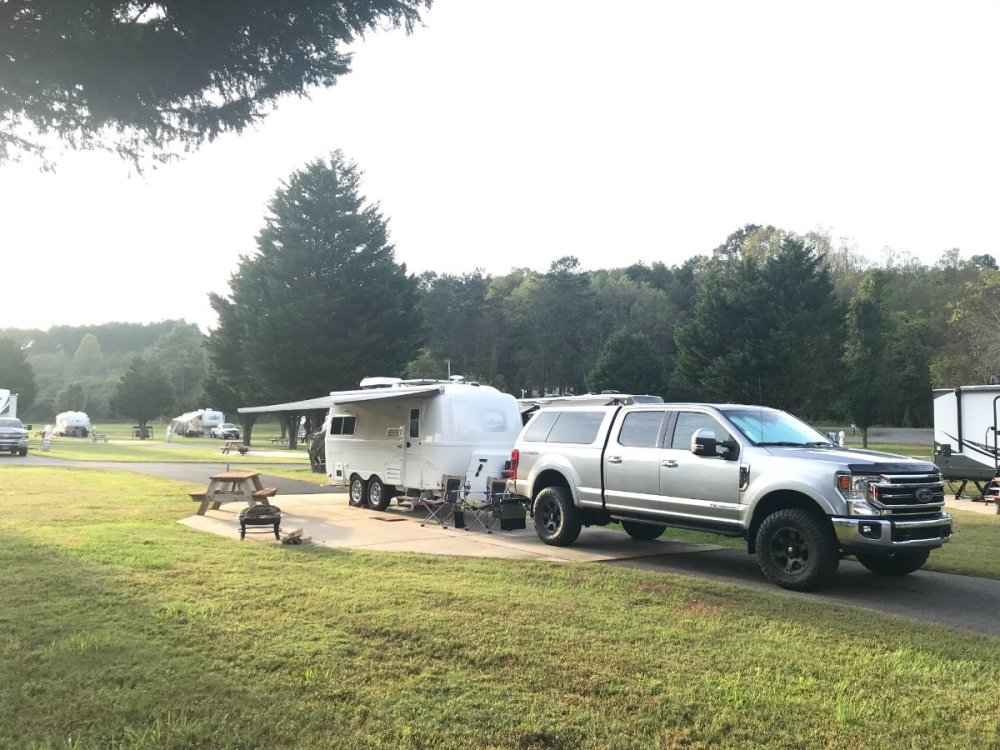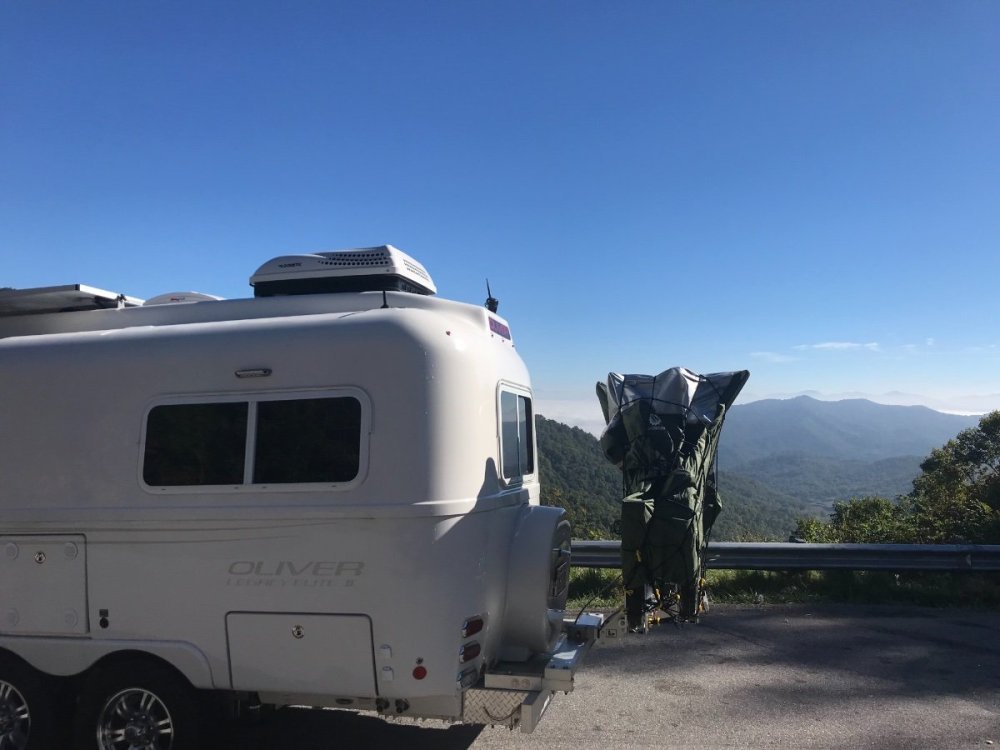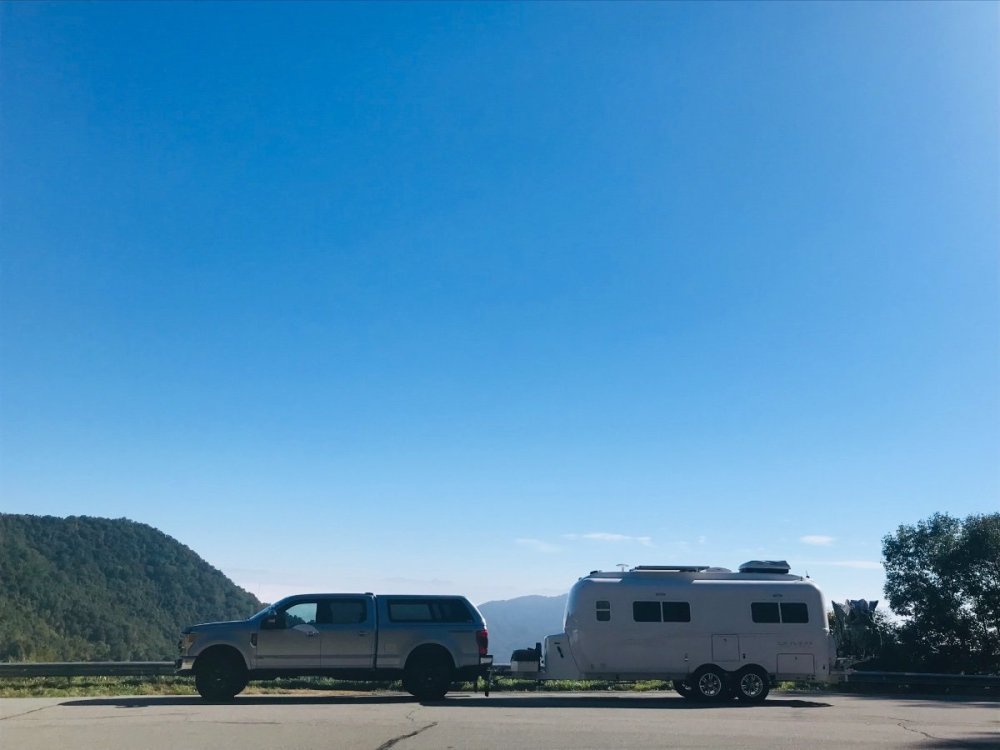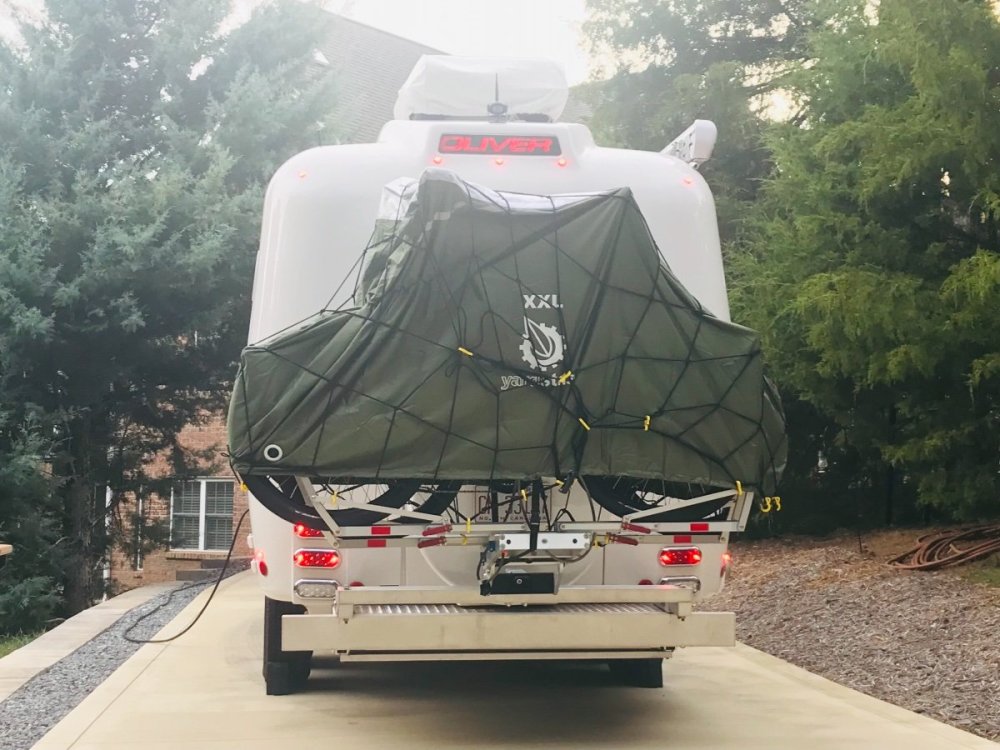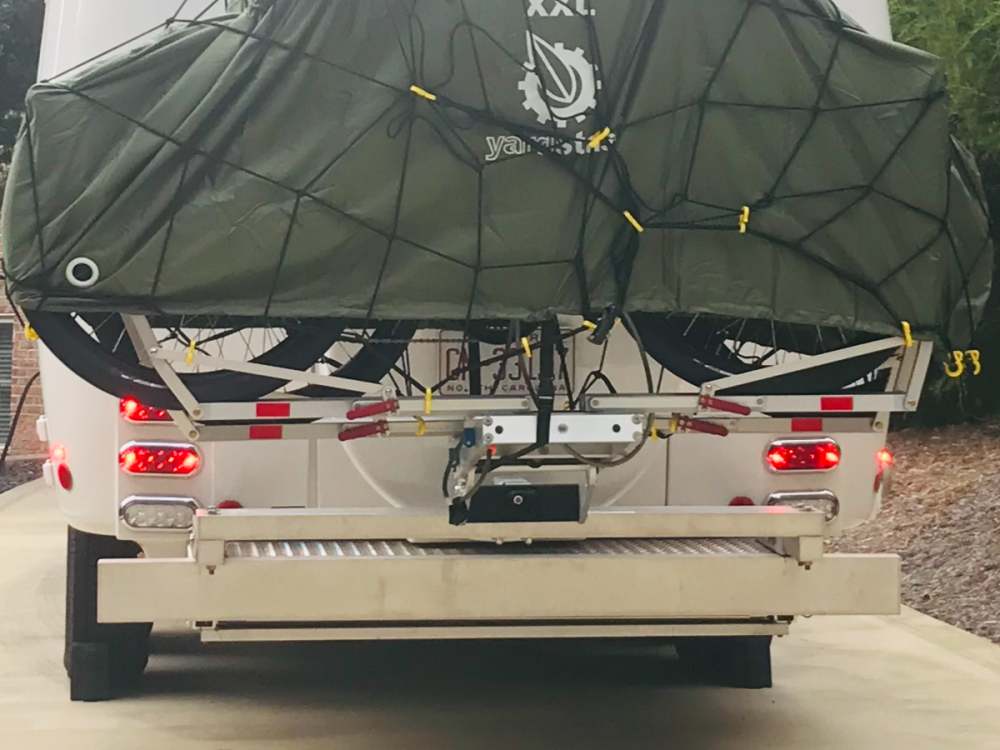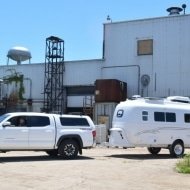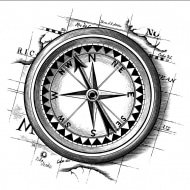Leaderboard
Popular Content
Showing content with the highest reputation on 10/16/2021 in all areas
-
5 points
-
Oliver in Wild - We spent 5 nights here - https://riversedgemountainrvresort.com and did a little exploring around Nantahala National Forest, Vogel State Park, Blairsville, and Brasstown Bald. Rib Country is now are most favorite barbecue joints in Murphy…awesome cue!! We were camping among the giant RVs.😄 Lots of large motorhomes and big 5th wheels. The RV park was extremely clean and well kept and had large concrete pad sites. We met a number of super nice people during our stay. We took our bicycles in order to do a shake down of our 1Up USA (2) bike rack. We loved having our bicycles with us, it was just great to pedal tour around the park. The 1Up USA Super Duty bike rack performed excellent with no issues during our trip. The license plate relocation bracket arrived while we were gone so I installed it when we got home. I may add an LED license plate light. A few pics of our site, bike rack and views along the way. Bike rack loaded without the license plate relocation kit. Plenty of tail light visibility but needed the license plate relocation bracket. Bike rack deployed- Rack in upright store position- Our site - Looking from Nantahala National Forest up towards the Smoky Mtns. Already missing the higher elevations of the mountains -5 points
-
Hi John D. We picked up our trailer last month and when we travelled back from Tennessee to Washington State, we had the fridge on 12 volts all the time. (we have the lithium pro option- 390ah) . The batteries at the end of the travel days were always just under 90% according to the Lithionics Battery app. We are new, but we love our Oliver!2 points
-
Just saw this short article which was complementary of the Oliver Elite. https://www.autoevolution.com/news/legacy-elite-travel-trailer-is-americas-little-known-weapon-in-rv-world-game-171724.html2 points
-
We took delivery of our LE2 Twin Bed model, hull number 894, on September 16th. We stayed at the Oliver site the first night, then on to David Crockett SP for one night, then three nights at Fall Creek Falls SP, TN. After torrential rains enroute to Fall Creek Falls SP, followed by three days of nearly constant rain (got to know the inside of the trailer really well), we bailed on our plans to continue eastward to Great Smokey Mountains National Park, where three more days of rain was forecast. We decided to head back to the Oliver mothership to have a couple of issues dealt with before wending our way westward to Northern California. Our screen door latch failed, a first according to Jason. I removed the catch so we could open the door without fear of being locked in or out. The latch was replaced and has since been behaving. One of the Andersen WDH frame clamps moved, allowing the attached chain to become slack. The problem was traced to a cross-threaded set screw, which gave the impression of being tightened enough, but it was protruding from the frame clamp much more than the set screw on the other frame clamp, which should have been a clue to the installer. The frame clamp was replaced with no issues since. Within a week of delivery, I noticed that the caulking around the rear streetside window had yellowed, while the caulking on all other windows was still pristine white. I assume that during production someone ran out of caulk and grabbed the wrong kind. While only being a cosmetic issue, it still bugged me, and I will re-caulk that window when all others need to be caulked. We have the Suburban water heater. Ten days after delivery, while opening the water heater door to turn the heater to electric mode, one of the sheet metal screws holding the door hinge fell out, apparently having been stripped during assembly at the factory or installation at Oliver. The missing screw allowed the forward part of the heater door to open almost half an inch. I felt fortunate that a gust of wind didn't rip the door off completely while underway. I used some white duct tape along the bottom edge of the heater door to act as a hinge, which held for the rest of the trip home. The apparent fix is to replace the missing screw with a larger one. Unrelated to an Oliver issue, I brought a TireTraker TT-600 TPMS system with us so we could have an easily installed TPMS system for the long drive home from Hohenwald. While marinating in the rain on our third day at Fall Creek Falls SP, I noticed that one of the trailer tires had gone from 55 PSI to 36 PSI overnight, with no obvious source of a leak. Rather than changing the tire in the heavy rain, I just inflated it to 70 PSI and checked it periodically the next day on the way back to Hohenwald. The tire held pressure, but I asked Jason to have the tire removed and check for the source of the leak. It turned out to be the TPMS sensor, and not an object in the tire. I replaced the leaking sensor with a spare (I bought 6 sensors), but it leaked audibly, no soap spray needed to find it. Next, I removed the sensor from the spare tire to put on the rolling wheel, and all was good. I will contact TireTraker to resolve the leaking sensor problem. Our Ollie got it's first bath today. While washing the roof on the streetside, I discovered that there were three loose stainless fender washers laying by the middle awning mounting bracket. Also, a few feet away there was a quarter inch chip in the roof gelcoat. Kind of disappointed in the quality control. I need to contact Oliver to find out how to fix the gelcoat chip. Other than those relatively minor issues, the Ollie is very comfortable and tows easily behind our RAM 1500 EcoDiesel, with no sway when passing or being passed by big rigs.1 point
-
I’m in agreement with Fritz, I am relatively new to this and have been using our 3-way Norcold fridge in 12V mode when in transit…..sometimes….depends on the situation. We have hull 797, with standard 340W Zamp solar package. I replaced the new, standard lead-acid deep cycle batteries with 2 x 100AH BattleBorn lithium. It has the Zamp controller, no Inverter. The TV charge wire is disconnected inside Oliver, per Oliver protocol for lithium packages. As an example of my experimenting to date, our last trip we drove a few hundred miles per day for last 2 days, and dry camped each night in a different location. No generator. I ran the fridge on 12V both days for about 6 hours each sunny day when driving, including gas and rest stops, then switched to propane when parked for the night. Ran the Maxxair fan at low or medium full-time, except when driving. Used all the 12v lights whenever needed, used awning LED and courtesy lights at night, and water pump for dishwashing and showers. When I arrived home, my Victron BMV monitor showed SOC at 80%. So in those sunny conditions, I think I can run like this daily for many days with no concerns, but not always. If I expect overcast skies, and perhaps no AC plug in to re-charge for several days, I’ll run on propane. I understand most Trailers/RV owners run propane most of the time, which is simple, trouble-free, and most efficient. I do it too sometimes, but I have safety concerns in the event of an accident. That rear propane quick connect is just behind the rear bumper, and I have nearly been rear-ended several times in stop & go interstate traffic, which is one of the most common type of crashes. I understand the stats show that propane related fires are rare, but insurance & liability concerns have me a bit paranoid. I studied the fine print on my insurance policy, can’t find a reference to this issue. If someone has some legal or common sense insight on these liability issues, please let me know. As I mentioned, I’m relatively new to this and appreciate the wisdom from this forum.1 point
-
1 point
-
You can use cables or what I used was buss bars and locked the four batteries together with a piece of material called star board which I machined to interlock the batteries together. I used that to mount the main fuse, the disconnect switch and the Victron battery monitor. Here is a link to the project. http:// Home Oliver Campers Ollie Modifications Lithium Battery Upgrade1 point
-
1 point
-
We come from the truck camper world. We have ordered an Elite II and have our tour and meeting to finalize options on 10/21. Having spent hours on the forum and Facebook, your list is spot on. We won't get our trailer until late June '22. I already raised the question of compressor fridges. We have two, one in the camper and another in the truck. They are awesome and with lithium batteries power will never be an issue. Acrylic with windows that are hinged on the top and can be locked into several position, would keep rain water out and allow windows to be cracked. Until we spend time in the trailer and experience everything, I wouldn't want comment on your other suggestions. You did miss one😎. The porch lights would be better with an Amber lens. The light by our camper door is Amber and no issues with bugs.1 point
-
1 point
-
And - that is Matt Duncan's (Oliver's Director of Marketing) favorite beer! You really know how to roll!1 point
-
1 point
-
1 point
-
Same here. So long as you know the limits, and still see a benefit for how you travel, then by all means go for it. One of my upcoming upgrades will certainly be a Victron Orion and who knows, maybe some batteries to go with. But probably making my own if I do.1 point
-
@Jim_Oker, yours is the perfect reason why people opt for bigger lithium batteries. Reduced range anxiety. I totally get that. I could go a week to 10 days, with no solar, with 600 ah of lithium. 5 or 6 days, with 400. The problem we face here, is many new owners with zero power management experience, and limited camping experience. I try to share my experience, as you do, too, and I thank you for that.1 point
-
Yeah, I opted for the 400ah of Lithium because we often camp for 1-2 weeks in partial to full shade here in WA, so we can run some deficit each day and still be ok for quite a few days that way before we need shore power (I'm less interested in running a generator for several hours in a row periodically). I opted in knowing that we'd rarely if ever use anything near the total stored charge in a day but for our scenario this still offers significant convenience. A week under big trees in the Olympics in May confirmed the choice, though it would have taken another week to be getting concerned about getting too low.1 point
-
I agree with all that. When @Overland was first talking about 400 ah of lithium, and 600 + watts of solar, I was astounded.. in 2017. It's totally ok to order mega ah of battery power, if you'll actually use it. 340 watts of solar will not recharge it, for most folks. It depends on useage. I have 210 ah, agm, 400 watts fixed solar, 200 watts portable, 60 to 80 ah a day usage, so I sometimes have to add in generator power. I'm ok with that. But, I know what to expect, and I'm a power miser. If you want to camp, say 4 or 5 days, with just battery, and not worry, go for it, if your budget says go. Mine wouldn't, frankly. I carry a small genset, anyway, so why spend so much on battery power? 100 or 200 ah lithium would be lux for me. As far as b2b battery chargers, that's more tied to your truck/tv, and I'd never expect Oliver or any other manufacturer to deal with the intricacies of that. A b2b wouldn't even help us that much, with covid camping style. We run up. Stay 2 to 6 weeks, and never connect. The solar is our mainstay. If I were involved in trailer manufacturing, I wouldn't touch b2 b charging, honestly. Too much liability.1 point
-
True, but what trailer manufacturer does? Remember that B2B chargers are what's required, and while Sterling has been around the marine world for a while I think, they weren't well known in the trailer or overland community until the past few years. So the trailer world has traditionally just ignored the fact that the vehicles could't charge the batteries; just up to now the battery banks were too small for anyone to care (also, people assumed that the charge that they got from their solar while on the road was coming from their truck). Truth is, I think adding a B2B charger to either lithium package is more likely to add another layer of disappointment. Beneficial, yes; but still inadequate. I don't think that Oliver's sin is so much the lack of B2B charging, but that they aren't communicating the limited ability of either that or their solar to charge a super large battery bank. In their defense, most owners find the subject to be pretty opaque. But FYI to all potential buyers, there's a very limited use case for a large battery bank without also investing in large panels and perhaps also a B2B system; i.e., it makes sense only if you're planning to use power at a faster rate than you can recover. There is, and I can't stress this enough, no way to recharge them for continuous use, at least not one that makes sense with this trailer - Oliver's solar package will provide about 70Ah on average, and B2B charging maybe 100 for an 8 hour drive. Even on a long, sunny drive, you would only plan for 170 Ah even with B2B. Not 350, and certainly not 570, which is what would be required to recharge an exhausted pro or platinum LFP package. So, at the end of the day, either your consumption is within those charging limits (in which case, you didn't need the batteries); or you carry a generator to recharge them (in which case, you didn't need the batteries); or you use electricity with wild abandon for six days and then go plug in or run that generator for 6 hours (at least you had 6 days of quiet). I'm not saying no one should buy them; but wow, everyone should give it some deep thought before doing so. There's advantages, just few and far between.1 point
-
1 point
-
We have towed Hull 790 with lithium package about 6,500 miles over 4 months of use. We use the 12V option on the refrigerator. Sometimes. It depends.... I'm reluctant to use propane for the refrigerator while driving, not because of usage, but because of safety. In the event of a severe accident, a ruptured gas line with an open tank valve could make a bad situation worse. The refrigerator uses about 15 amps when running on 12V. This is about what the panels produce on a sunny summer day. On a cloudy day, or a sunny late fall day, the solar will not keep up with the fridge; you'll be drawing from the batteries to run the fridge. If the batteries are topped off, and there is sun in the forecast, then no problem (they shouldn't be maintained at 100% anyway). If the batteries are low, and the forecast is for clouds, then this may not be a good option. The problem with using State of Charge (SOC) in the Victronics app to measure refrigerator impact -- especially on a new trailer -- is that the SOC has to be calibrated. Calibration happens when you run the battery to reserve voltage (12.0 volts) and then do a complete charge with shore power (to 14.4 volts). The SOC readings in the Lithionics app should be more accurate after this, although I'm not fully convinced of this yet. I learned this the hard way: we ran down our batteries completely by accident (and had to hand-crank the awnings and stabilizers) but the app indicated that the SOCs in each battery were between 57% and 62%. So, on a cool day while driving we might turn off the fridge (it stays relatively cool for a long time). On an open road with little traffic we might use propane. On a busy freeway, especially in urban areas, on a hot sunny day, I'll turn it to 12 volts. I use a temperature sensor to monitor fridge temperature remotely (https://www.amazon.com/SensorPush-Wireless-Thermometer-Hygrometer-Android/dp/B01AEQ9X9I/ref=sr_1_1_sspa?crid=21PYNKL0E7HOX&dchild=1&keywords=sensorpush+sensor&qid=1633192318&sprefix=sensorpush%2Caps%2C257&sr=8-1-spons&psc=1&spLa=ZW5jcnlwdGVkUXVhbGlmaWVyPUEzQVdBSFlCMk9SQ0taJmVuY3J5cHRlZElkPUEwNzUxMzExMjM4SFVHWTNVTEdCQiZlbmNyeXB0ZWRBZElkPUEwNjIyMjYwMzQwSzIzRTFDRjZUTSZ3aWRnZXROYW1lPXNwX2F0ZiZhY3Rpb249Y2xpY2tSZWRpcmVjdCZkb05vdExvZ0NsaWNrPXRydWU=. This sensor (which I think NCeagle first mentioned on this forum) is expensive, but terrific (I'm using several now to monitor humidity and temperature in the fridge, trailer, instrument cases, etc.). Similarly, we ordered the lithium package in part because we were told that Oliver would "likely" have a TV charging solution by the time that we picked up in April. I was disappointed that this was not available at pickup, and that there still doesn't seem to be a solution that Oliver can recommend and for which Oliver could provide some installation guidance. Others have installed DC to DC charger (e.g., search for John Davies Redarc thread), but it sure seems like this problem of not being able to charge from the TV is something that Oliver would want to solve. Hope this helps.1 point
-
What is the concern about using propane to run the Norcold fridge? The propane usage is minimal, based on our experience.1 point
-
We have the Norcold in our Oliver 2 (hull 770) with the lithium package. Running the fridge on 12 volt the batteries run down very fast. We recently ran the fridge on 12V on an 80 + degree day and found after about 8 hours the fridge drained the 390 amp hour battery bank to about 65%. I do not believe his rate of power consumption is sustainable in our Northwest climate if you are off the grid as the solar will not keep up. After 8K of travel in the five months we have owned hull 770 we find we use propane to power the fridge all the time unless hooked to 110. There have been no issues so far. The inability to charge the lithium batteries from the tow vehicle is a serious issue for those of us who live in the Northwest and camp off the grid. I went with the lithium package despite my misgivings in the hope Oliver will work with Lithionics and come up with a TV charging option which they both support and which we owners can confidently implement. As I am unaware of any progress being made in that direction, I question whether I made the right choice going with the lithiums. In the defense of the system, we have found that given mild temps and a reasonable amount of solar gain, the panels will keep up with our electricity demands if we stick with propane to power the fridge.1 point
-
Some tents are just bigger sails than others and are not possible to hold down without something giving in a sufficiently strong wind. That’s amazing how well it held up. Sounds like it did better than my grandmother’s clothesline (one of those with a post and rails making a square on top) which my father describes chasing partway across Southbridge MA during the Hurricane of 1938. He said the clothes weren’t much good by the time he finally got to them.1 point
-
I'm hoping that someone with the Lithium package will chime in on the feasibility of running the fridge on 12V while in transit. When we had our old travel trailer, I'd put a small bag of dry ice in the fridge just before departure, then turn the fridge off. Only if we were planning to be on the road for more than 90 minutes, or if it was unusually hot. Otherwise I would just pack the fridge with some frozen items and/or a few ice packs, and hit the road.1 point
-
I did get to know about the secret handshake, and got to practice it. What I didn't do is tell anybody about it. Now you have told the world! May the secret die in peace...1 point
-
John, I've got a National Luna in my truck, too, and power it with a small AGM battery, which is charged from the truck while driving and also pair of solar panels attached to a rack. With that setup, I've never depleted the battery while traveling. I used a Victron Cyrix smart relay to prevent the fridge from draining the starter battery, and just allow the truck's electronics to act as the regulator for charging the house battery. And I've got a Victron BMV to monitor everything via bluetooth. It's been a good setup and made the fridge something we don't really think about. I've got a DC fridge in the trailer, but now that I've had experience with the NL in the truck, I'd keep the absorption fridge if doing it again. It's just a big drain on the trailer batteries that I wouldn't have to worry about. Propane for us seems to last forever.1 point
-
Scubarx brought up an important point on the Norcold. I, too, advise owners to manually select the power source each time. The older dometics didn't ever default to dc. The norcold will, if left in auto, and can leave some with depleted batteries unknowingly. There are a few areas where you must turn off propane tanks, not just the fridge. Many ferries require it, and some check and tag the bottle at boarding. Some tunnels, either because they're heavily trafficked, or don't have the typical little rise in the center. They're usually clearly marked, and have an alternative route, or have a pullout area to turn off tanks. Most can be avoided with planning, and if not, it's just a minor inconvenience.1 point
-
The auto function fridges in the newer trailers operate differently from our older Dometic units. They will select from all three available power sources, be careful it at it doesn’t select DC. Ninety per cent of all RVers run their fridges on propane while traveling. We driven >150K miles like this and I don’t ever recall a situation where we were required to turn it off.1 point
-
We run our fridge on propane when traveling. We’ve never used 12V. It switches to 110V if we have hookups. Mike1 point
-
Congrates on taking that first step in really joining the "family". These absorption fridges are most efficient when using propane. Running them on electricity (12 volt or 110 volt) requires the heating of an element (kind of like a space heater) and that takes a fair amount of a limited resource when on 12 volt. Assuming that it is not too hot out and you are not driving too far then it just might be simple to turn off your fridge during those circumstances. I've only done that a couple of times though. The problem is - you risk spoiling food and you have to remember to turn that puppy back on. Yes, with the larger battery capacity of the lithium it is possible that you might have enough power to not be concerned. But, you will still need to remember (I think) to switch it back to propane. I'm in the camp that simply leaves the fridge on "automatic" all the time (unless as Sherri says it is dangerous or illegal). This way the fridge is always on propane unless I'm plugged into "shore power - 110. One less thing to worry about and/or remember. Bill1 point
-
Hoo Boy...this post brings back some memories. Friend and I were camping in Moab in the 90s, back when you could still disperse camp just about anywhere. Set up our tent about 15 feet from the edge of a canyon. Did our best to stake it out, but we were camped on rock and there were only the flimsiest of trees nearby. So....we loaded our tent up with all of our gear, including the camp kitchen to give it some extra weight. Bet you can guess where THIS is going.....Yep! Went to town for dinner, and when we returned - nothing! Every last bit of our camping gear had blown into the canyon, about 200 feet below. Fortunately, there was an established jeep road right below, so we got a hotel for the night and then hiked in 2.5 miles to retrieve our stuff.0 points
-
Recent Achievements




